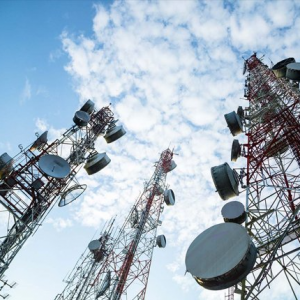

Nigeria’s Federal Executive Council (FEC) has approved the construction of an additional 7,000 telecom towers critical to the West African country’s rollout of 5G deployment and digital transformation.
The announcement, by Dr Bosun Tijani, Minister of Communications, Innovation, and Digital Economy, follows a US$500 million investment pledge by Airtel Africa to strengthen Nigeria’s telecommunications infrastructure.
The country looks to this infrastructure to bridge the connectivity gap in underserved areas.
The Nigerian Communications Commission (NCC) has already issued 5G licenses to MTN Nigeria, Airtel Nigeria and Mafab Communications.
According to officials, the newly approved towers, combined with Airtel Africa’s investment, will enhance the country’s 4G and 5G coverage.
“Our goal is to ensure meaningful access to connectivity, not just basic service,” said Minister Tijani. He noted that the towers will support the growing demand for high-speed internet, particularly in rural areas, where connectivity remains challenging.
Sunil Bharti Mittal, Airtel Africa’s founder, added: “Nigeria is the cornerstone of our African strategy. We’ve already invested 200 million in the past year and plan to inject an additional 200 million by the end of this year.”
The investments include US$250 million for radio networks, US$140 million for a new data centre, and funds earmarked for spectrum expansion, totalling over US$500 million.
The announcement of the additional 7000 telecoms tower aligns with Airtel’s renewed partnership with IHS Nigeria, which aims to boost tenancies to 10,000 over the next five years, further strengthening the infrastructure needed for 5G expansion.
This will help to digitally transform e-commerce, fintech, education, and healthcare.
The telecommunications sector contributed 14.13% towards the country’s GDP in Q1 2023, at a growth rate of 15.70% in Q1 2024. The new towers are expected to increase broadband penetration, which currently stands at 48% but is projected to reach 70% by 2025.










